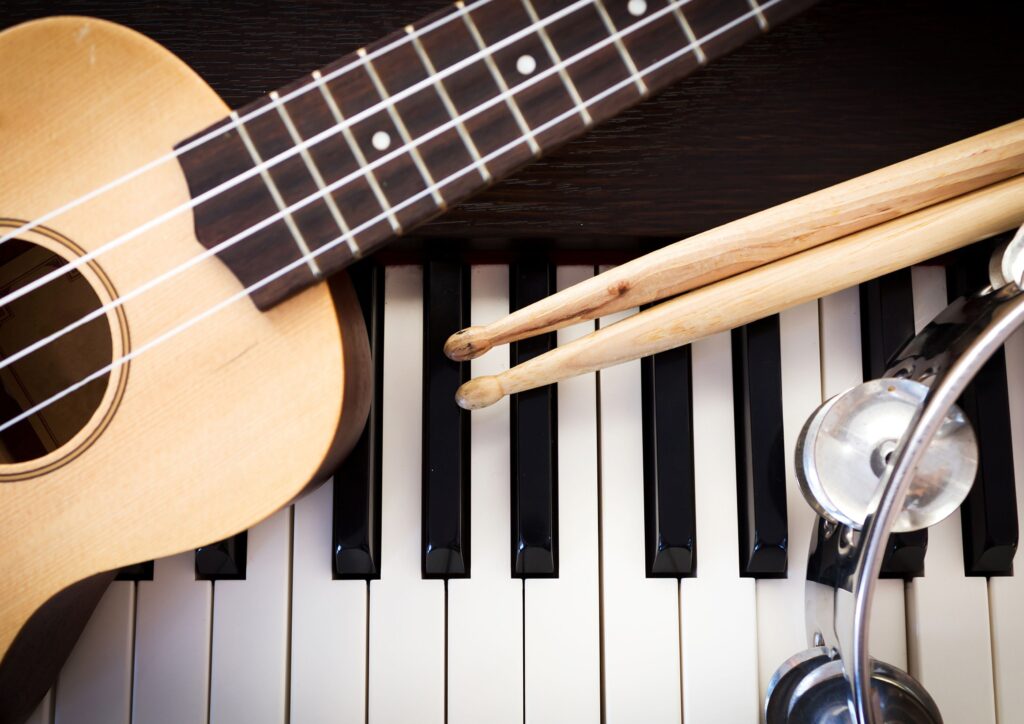Hobbies provide many benefits to children, but does your kid really need to start learning an instrument?
If you read my blog regularly, you can imagine my response to this question! It’s noisy enough in my house with three young boys!
This is a paid collaborative post.
But in fact, pursuing an extra-curricular activity can help children develop a range of key skills that support their overall academic and personal progress. So to learn an instrument, for instance, involves reading music, recalling melodies, and remembering how to play the note, all of which contribute to improved cognitive abilities.
An independent school in London explores some of the other benefits of learning an instrument below.
Learning an instrument encourages persistence
Learning an instrument isn’t just a one-hour lesson once a week. It also requires plenty of practise in order to master a piece of music. This teaches children the importance of persistence.
There will be days when they don’t feel like practising, but learning an instrument takes commitment, which is an important skill that even many adults are unable to grasp. A persistent child won’t give up, even when the going gets tough, not just in terms of their instrument but also in their personal lives and in school.

It boosts time management skills
A child who has various obligations, such as schoolwork, socialisation, and a hobby, will learn how to manage their time effectively. This is another fantastic skill that will serve them well, even as they become adults and start working. They’ll need to work out how to fit in learning an instrument into their busy timetable.
Learning an instrument can improve a child’s confidence
As a child becomes more proficient in their chosen instrument, and their other skills improve, their confidence will gradually increase. When they successful play a piece of music without any mistakes, they will feel a sense of pride, and that’s without the applause and praise they’ll receive from people listening.
As they start to have more faith in their abilities, they will feel more confident in other areas of life. For instance, they might feel more comfortable raising their hand in class to answer the teacher’s questions.
It increases opportunities
Being able to play an instrument will open up a range of opportunities for your child that they might not otherwise have had. For example, they might join an orchestra or a band and make lifelong friends.
As a member of this type of ensemble, they may start to travel and play in front of crowds all across the country, and possibly even abroad. What’s more, being able to demonstrate an interest in something other than their obligatory school commitments may help your child when the time comes to apply to jobs and/or universities, as they will be looked favourably upon as a candidate.
Do your children play instruments?

How did I do?
Did you enjoy this post? Why not hang around and read some more. If you want to read some more of my usual kind of stuff, head over to my Mum Life section. You’ll find all things parenting with a tongue-in-cheek twist. Or if you want some days out and UK family holiday inspiration, click on the Travel section.
If you like a bit of social media madness, pop over to my Facebook page where you’ll be able to have a laugh at what ridiculousness goes on in my house with three very small boys on a daily basis. Warning – there is often sarcasm, and usually swearing. There are also great travel reviews and some AWESOME giveaways. Feel free to join my Twins, Tantrums and Cold Coffee – Shits and Giggles Parenting Group too, where everyone shares their hilarious stories.
And if you want to work with me, feel free to give me a shout here or at helen@twinstantrumsandcoldcoffee.com and I’ll get back to you.
